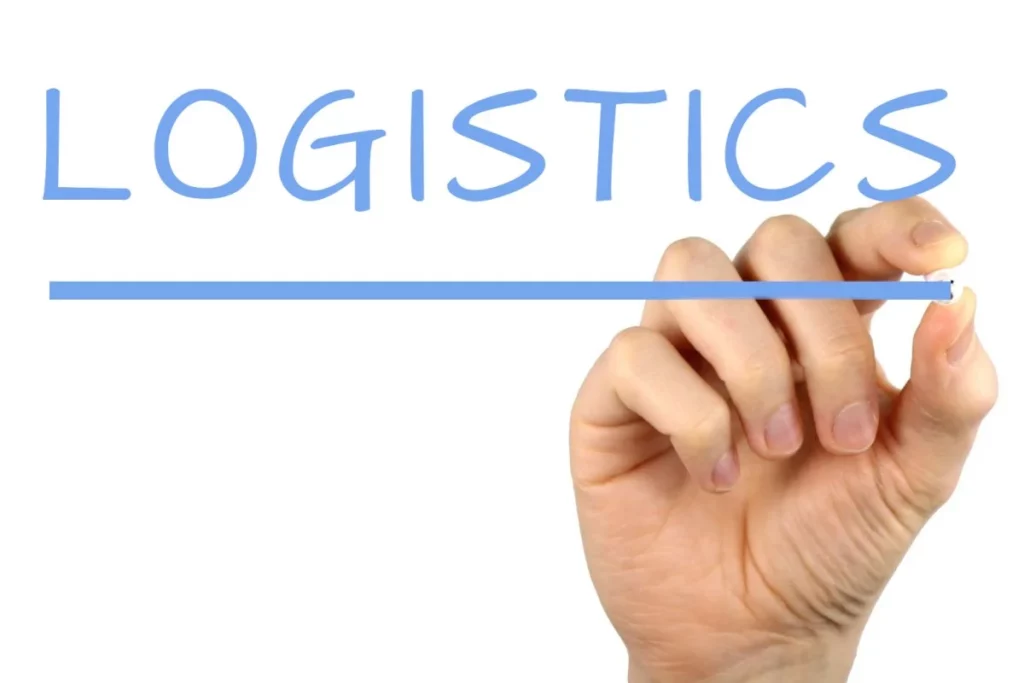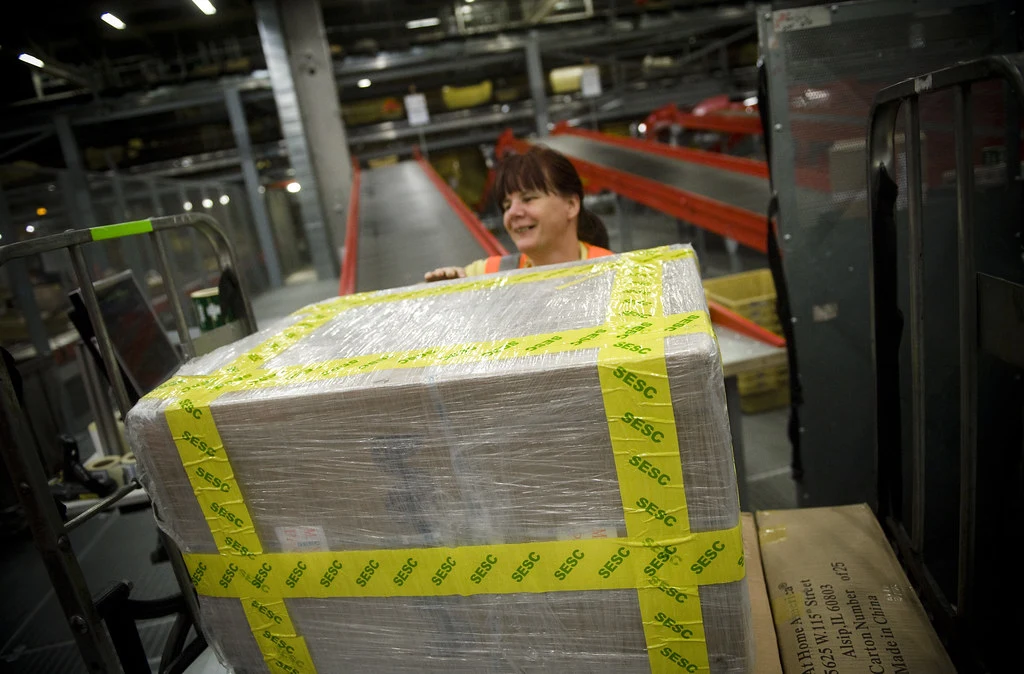Have you ever given the recent evolution of logistics any thought? In the midst of evolving commercial models, new technological advancements, and shifting consumer behavior worldwide, businesses now have to contend with a new obstacle: staying progressive and adaptable.
Logistics is no longer just an isolated operational activity; it is now a crucial component of the engine driving corporate success, thanks to the integration of tracking technologies and the revolution in inventory management. These modifications have brought attention to how urgent it is to take a more proactive and creative approach to guaranteeing market relevance and competitiveness. Planning is now crucial in logistics operations as a result.
It’s critical to acknowledge each of these developments as we progress further in 2024 and to comprehend how they will affect the logistics industry going forward. In light of this, we discuss some of the major forthcoming trends in this piece, and—above all—we show you how businesses may take advantage of these trends to secure a healthy and profitable future.
Read also: How to Make Reverse Packaging Logistics More Efficient?
Why is logistical planning necessary?
Businesses that understand the value of being relevant and in sync with developing trends can obtain a competitive edge in a market where change is the only constant.
Effective logistics planning is becoming more than simply a strategy; in 2024, it will be essential to a company’s success. Navigating the dynamic nature of today’s industry requires being ahead of the curve, anticipating change, and embracing it.
Organizations that embrace a growth and upgrading mindset are better equipped to handle obstacles and are more ready to seize the opportunities presented by these changes. Additionally, logistics planning’s flexibility enables businesses to modify their plans quickly, reducing risks and optimizing rewards. Thus, logistics planning is more than simply an operational procedure; it is unquestionably a vital tactic for companies hoping to thrive in a fast-paced commercial environment.
We provide helpful advice and tips on how to get your warehouse ready for the latest market trends below.
How to carry out logistical planning for 2024?
Understanding the current situation and what will be the trends in the upcoming months is essential for you to conduct effective logistical planning and make sure your business is prepared for all of this year’s challenges. Now that we have this knowledge, let’s draft the plan! The subjects listed below discuss the upcoming trends in 2024 and how you should adjust your business accordingly.
1. Popularization of e-commerce
Have you ever wondered how recent changes in customer behavior have been brought about by the popularity of e-commerce?
The simplicity of making purchases with a few clicks has completely changed the retail scene, but it has also brought with it a number of logistical difficulties that might continue into 2024. In particular, warehouses now have to deal with an unparalleled demand for efficiency and agility due to a significantly increased volume of orders.
Order processing, packing, and shipping in a timely and accurate manner have become top priorities. In this case, managers must devise effective inventory control procedures, minimize picking errors, and optimize delivery routes in order to satisfy customers’ increasing demands for prompt and efficient shipping.
Given these challenges, it seems sensible to factor in the deployment of WMS and OMS systems in your logistics strategy for 2024. Efficient inventory management is made possible by the WMS system, which also enhances traceability and optimizes internal warehouse operations, particularly picking and shipping. Order processing is centralized and coordinated by the OMS system, which makes it easier to integrate various sales channels. The two connected technologies will make it simple for your business to adapt to the demands of the new market.
2. Digital transformation in the supply chain
The supply chain’s digital transformation has evolved from a future concept to a reality. Modern technologies are being combined to increase and enhance warehouse visibility, traceability, and efficiency, including blockchain, the Internet of Things (IoT), and artificial intelligence (AI).
The digital transition is a challenging task since the effective integration of these technologies with current systems is necessary for their successful integration. A digital supply chain’s efficacy and dependability are based upon its capacity to safeguard against cyber attacks and maintain data integrity. Additionally, selecting the wrong partners can result in large expenditures associated with technology implementation.
Companies need to create strong strategic plans, find strategic alliances with IT professionals, and make significant investments in cybersecurity in order to overcome these obstacles.
3. Urbanization and delivery times
Urban area congestion is a major difficulty for traditional distribution networks, as it directly affects efficiency and punctuality.
Businesses must adjust to satisfy customer expectations and maintain competitive delivery times amid busier streets and more traffic. It might be necessary to increase the 2024 logistics plan’s investment in cutting-edge solutions, including the WMS system, in order to deal with this reality.


Image source: Picpedia | Logistics Planning 2024: How To Carry out Logistical Planning for This Year
In addition to optimizing order preparation at the distribution center, the WMS system can prioritize demands according to factors like geography and urgency. Intelligent algorithms can also be used by WMS to assess demand trends, traffic information, and previous order data. With the help of this analysis, more effective routes may be designed, accounting for variables like delivery time, distance, and client priorities.
4. Increase in fuel prices
Variations in fuel prices, inflation, and the ensuing rise in transportation costs can raise operating costs, which can have a direct effect on supply chain efficiency, profitability, and the product’s ultimate value.
The difficulty is striking a balance, even in the face of ever-rising expenses, between solutions that guarantee timely deliveries, product quality and value, and operational efficiency. Warehouses are in a precarious situation because of the pressure to maintain low prices without sacrificing service quality.
Once more, the WMS system may hold the key to overcoming this obstacle. It facilitates real-time tracking, predictive analysis, and loading volume formation, allowing businesses to optimize routes, cut distance, and ultimately minimize transport expenses.
Improved inventory management techniques also lessen the need for needless travel by preventing surpluses and ensuring that the appropriate products are in the proper locations.
5. Labor shortage
There is a labor shortage in the logistics industry right now for a variety of positions, including drivers, skilled technicians, and warehouse personnel.
In order to address this situation, businesses need to make training and development programs a top priority in their logistics plans for 2024. They also need to provide competitive compensation packages and create engaging work environments that will draw and keep talent.
Providing teams with a suitable work infrastructure is also crucial. In this instance, software and automation can remove monotonous duties and enable staff members to provide better service, which will boost their enthusiasm.
6. Sustainable logistics
Growing consumer concern over the environment has led to a search for business partners who share sustainable principles. This has created logistical issues, particularly for traditional warehouses.
Adopting sustainable methods comes with new challenges, such as fulfilling delivery dates, managing inventories effectively, and planning routes that maximize efficiency while complying with environmental regulations.
On the other hand, management systems like WMS provide answers by increasing operational effectiveness. WMS optimizes storage space, effectively manages stocks, minimizes product waste, encourages intelligent strategies in routes and processes, provides real-time visibility for prompt response to demand changes, and supports recycling and sustainable packaging, all of which help to lessen the impact on the environment.
Succeed in 2024
In 2024, the corporate environment will be dynamic and demanding due to reasons like urbanization, digital transformation, sustainability, pressure for agile deliveries and high-quality service, and a need for creative solutions.
This is where forming fruitful strategic alliances and investing in cutting-edge technology like WMS and OMS come into play. Adopting strong systems will enable your business to minimize waste, streamline processes, and meet particular issues with clever solutions for things like order processing, inventory management, and route optimization.
Keep in mind that successful partners offer not just cutting-edge innovation but also strategic counsel to overcome issues when you look for the ideal technology provider for your firm. Therefore, before choosing which solution to invest in, carefully consider the possibilities that are available on the market.
Remember that unexpected things can happen at any time of the year and change the whole plan. Prioritizing an open supply chain with real-time data and adaptable, scalable solutions is crucial for navigating any transition. Agile decision-making and route changes when needed will be ensured by doing this.
Contact us if you wish to rely on a strong logistical collaboration. A group of experts in logistics innovations has been assembled by us, and they can provide your company with the finest advice possible. By working together, we can transform challenges into chances and create a prosperous and innovative future!



